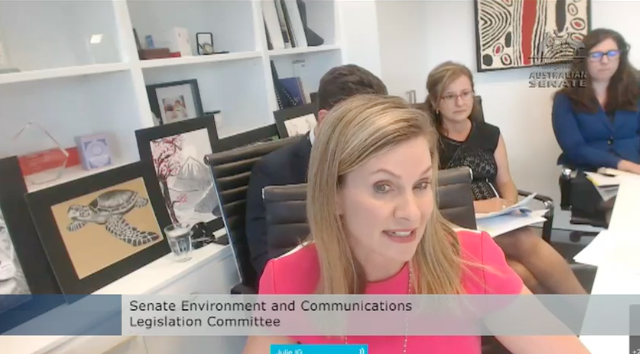Australia’s eSafety Commissioner has defended the controversial Online Safety Act, arguing that the broadness of the proposed powers allow her to use discretion to deal with online harm in complex situations.
The Office of the eSafety Commissioner is an independent government body with more than 100 staff tasked with keeping Australians safe online.
After six years of existence, the proposed Online Safety Act would continue the evolution of the role from originally designed to stop children’s cyberbullying, to someone who takes responsibility for help with online abuse for adults and dealing with terrorist and other violent material online by giving broad powers to censor or deplatform content.
In a Senate Committee hearing on the legislation, eSafety Commissioner Julie Inman Grant, members of the Office’s leadership team and representatives for the Department of Communications made the case for expanding those powers.
Appearing after speakers for the tech platforms and civil society groups, Inman Grant’s opening remarks mostly addressed the concerns of the former.
“These new powers will be very targeted and surgical,” she said.
Inman Grant made the case for both the reduced 24-hour timeframe for removal of online content and the powers to summon people or produce documents — both powers criticised by Facebook and Twitter respectively — by saying they’re both going to help the Commissioner’s office assist victims.
Questioning by the Senators on the Committee, however, went in different directions.
Labor Senator Nita Green asked how the Office would triage complaints made to the cyber abuse scheme, and questioned how concepts of ‘harm’ and ‘offence’ would be used to determine what content to act on.
Green gave the example of a George Christensen post that she claims directed his followers to a female politician who suffered “more than a thousand” offensive comments, while noting that Christensen’s post itself was not explicitly offensive itself. The question was taken on notice.
Committee Chair and Liberal Senator David Fawcett also raised concerns about how the cyber abuse scheme would be used — questioning whether it could be used to silence political speech.
He asked how the Commissioner would deal with historical examples of content that were both investigated for types of discrimination — a Bill Leak cartoon and a religious pamphlet — if they were submitted to the office. That also was taken on notice.
The Senators’ questioning of representatives for the Office of the eSafety Commissioner and Department of Communications about the sprawling legislation was both a bit scattershot, while also demanding specificity.
But that’s to be expected for a sprawling legislation that attempts to solve a whole bunch of broad issues in one fell swoop.
How the proposed Online Safety Act will actually work remains unclear. And despite the eSafety Commissioner’s promises to use the powers judiciously, and a track record of doing so, concerns about the powers were unlikely to have been allayed by this appearance.
